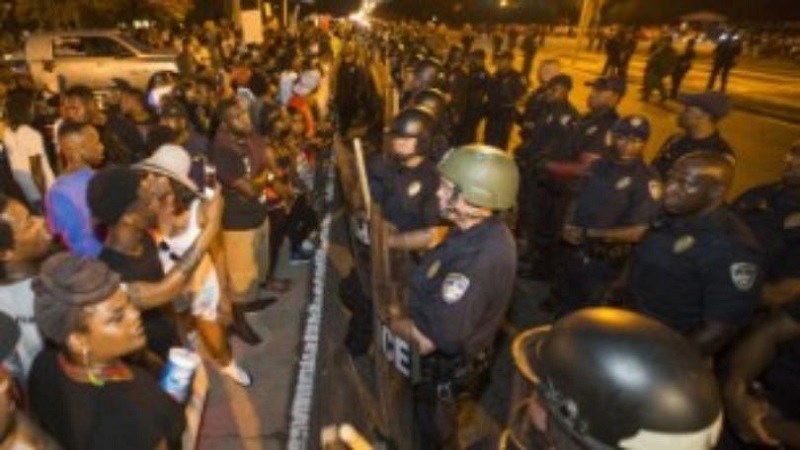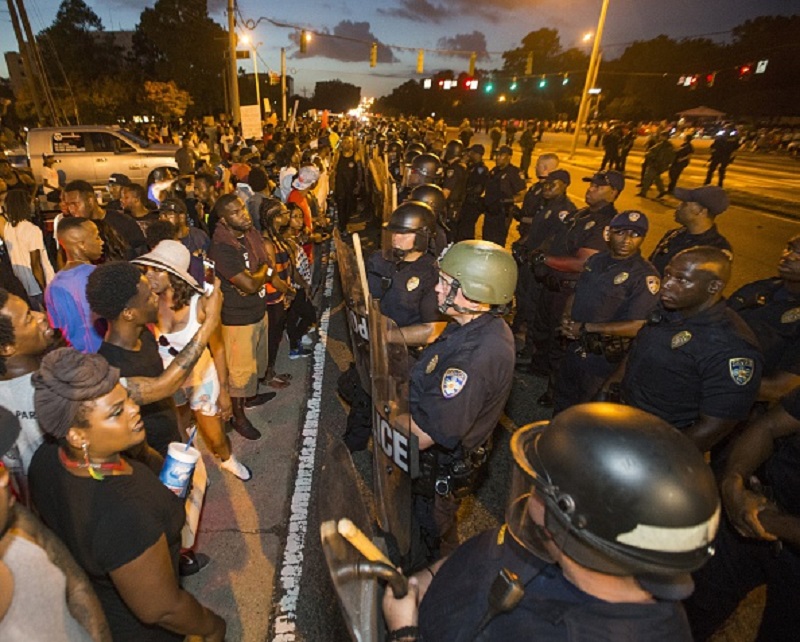

The National Police Association (NPA) has filed a friend of the court brief asking the U.S.Supreme Court not to accept review of an appeal by Black Lives Matter organizer DeRay McKesson. The brief supports Officer John Doe, who seeks to recover for serious injuries caused by a rock thrown by a participant in the Black Lives Matter protest lead by McKesson, that began peacefully but then turned into a “riot,” when McKesson lead protestors in closing down the street in front of a police station. McKesson claims that the First Amendment protects him from civil liability for the foreseeable consequences of his own negligent, unpeaceful, illegal, and dangerous activity.
On July 9, 2016, a protest began in Baton Rouge, one of many protests related to the Black Lives Matter movement, where protestors illegally blocked a public highway. DeRay McKesson served as prime leader and organizer of the protest. The Baton Rouge Police Department arrived prepared to make arrests. In response, protestors threw objects at police officers. One of the protestors threw a rock striking Officer Doe, from which he suffered serious injuries.
Officer John Doe brought suit for negligence against McKesson asking a court to hold McKesson legally responsible for Doe’s injuries since McKesson had recklessly led protestors down a public highway knowing the protest would likely turn violent. Since the protest illegally blocked a public highway, it was foreseeable that police would respond by clearing the public highway and making necessary arrests. McKesson asserted that, since he engaged in a protest when illegally blocking the public highway, he cannot be liable for the consequences of his illegal activity under the First Amendment. The federal 5th Circuit Court of Appeals held that McKesson could be liable for the rock-thrower under a negligence claim because there was a foreseeable consequence of McKesson’s own unpeaceful, and illegal activities, which are not protected by the First Amendment.
NPA’s brief argues that the First Amendment does not protect against legal liability for the foreseeable consequences of one’s own negligent, and illegal activity which pose a risk of serious harm to others. The brief clarifies that NAACP v. Claiborne Hardware Co., 458 U.S. 886 (1964), upon which McKesson relies, involved a lawful boycott, in which some, but not all, persons engaged in violent activity. The Supreme Court held that those not engaged in illegal acts could not be held liable for others’ illegal acts based on their speech, unless the person engaged in lawful activity authorized the illegal acts or incited violence themselves. In this case, the First Amendment does not protect a person from damages for the reasonably foreseeable consequences of one’s own illegal activities. Claiborne recognized protection for peaceful, lawful activities, but Mr. McKesson’s actions in Baton Rouge were illegal and led to foreseeable violence.
The brief argues that police officers need tort protection from negligent and illegal activity that poses a risk of serious harm to them. The violent and illegal activity associated with the Baton Rouge protests has infected similar Black Lives Matter protests organized in several U.S. cities, including Ferguson, Dallas, and St. Paul. Given the violence in these similar protests, the harm to Officer John Doe was particularly foreseeable.
James Bopp, Jr. of The Bopp Law Firm, P.C. and lead counsel for NPA on the brief, says: “The First Amendment only protects speech and assembly that is peaceful and lawful. So if someone engages in illegal activity while chanting slogans, the First Amendment does not protect them from liability for the reasonably foreseeable consequences of their illegal actions, and that includes violent acts of others that leader of the illegal protest could have reasonably expected. Police officers in particular need the protection of negligence claims compensating them for harms fairly traceable to those engaging in and leading illegal and dangerous activity.”
View the amicus brief here.
NationalPolice.org is a 501(c)3 nonprofit with a mission of educating supporters of law enforcement in how to help police departments accomplish their goals.